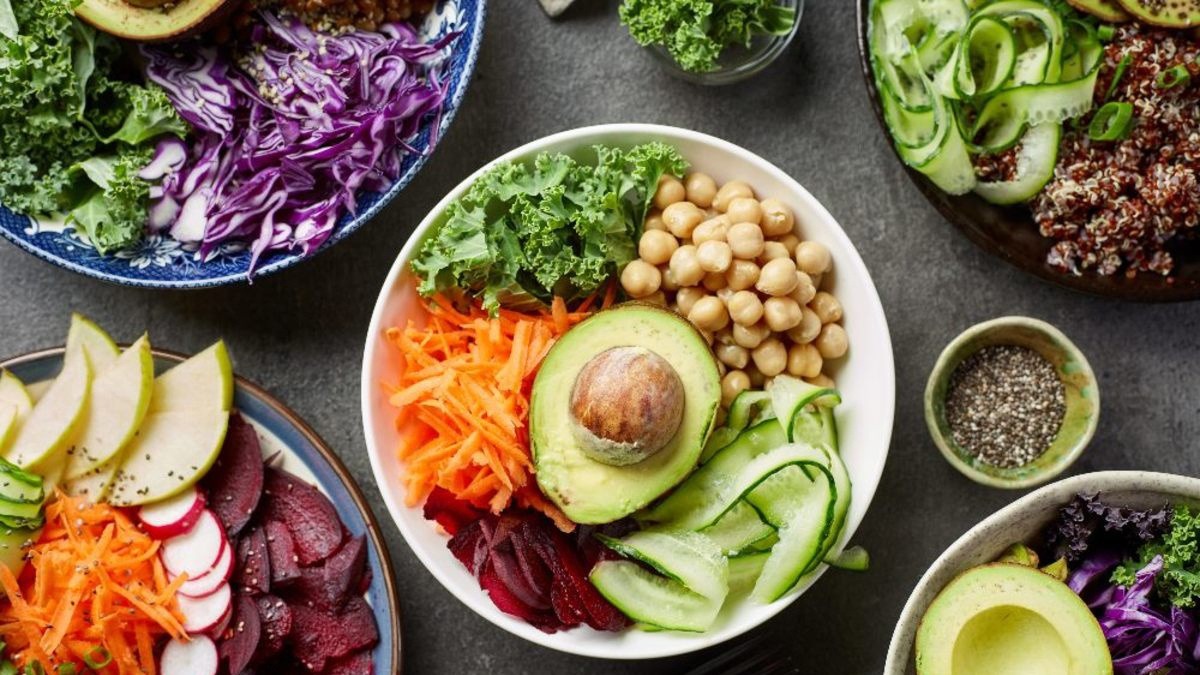Veganism is a dietary and lifestyle choice that has gained significant popularity in recent years. It is often associated with ethical, environmental, and health considerations. In essence, vegans abstain from consuming and using any animal products. This includes not only meat but also dairy, eggs, and even non-food items like leather and honey. The driving force behind veganism is a commitment to reducing harm to animals, mitigating environmental impact, and making choices that align with a healthier, more sustainable lifestyle.
The Vegan Diet: What Do Vegans Eat?
One of the most common misconceptions about veganism is that it limits dietary options. However, vegans have a wide array of foods available to them, and a well-balanced vegan diet can be both delicious and nutritious. Here’s an overview of what vegans typically eat:
Fruits and Vegetables:
Fruits and vegetables are the cornerstone of a vegan diet. They provide essential vitamins, minerals, and dietary fiber. Leafy greens, berries, citrus fruits, and cruciferous vegetables like broccoli and cauliflower are popular choices.
Grains:
Vegans rely on grains such as rice, pasta, quinoa, and oats to provide carbohydrates and energy. Whole grains are preferred for their higher nutritional content.
Legumes:
Beans, lentils, and peas are excellent sources of plant-based protein. They can be used in a variety of dishes, from soups and stews to salads and curries.
Nuts and Seeds:
Almonds, walnuts, chia seeds, flaxseeds, and hemp seeds are rich in healthy fats, protein, and essential nutrients. They can be consumed as snacks or incorporated into meals.
Plant-Based Protein Sources:
Vegans have access to various meat alternatives like tofu, tempeh, seitan, and products made from soy, wheat, and pea protein. These options mimic the taste and texture of meat without the use of animal products.
Dairy Alternatives:
Vegans use plant-based milk, such as almond, soy, or oat milk, in place of cow’s milk. Non-dairy yogurts and cheeses are also available.
Eggs Alternatives:
Eggs can be replaced with products like flax eggs (made from flaxseed meal and water) or chickpea flour in baking and cooking.
Healthy Fats:
Avocados, olive oil, and coconut oil provide essential fats in a vegan diet.
Herbs and Spices:
Vegans often use a variety of herbs and spices to flavor their dishes, making them both tasty and diverse.
Desserts and Treats:
There are vegan versions of many sweet treats, including dairy-free ice cream, chocolates, and baked goods.
Plant-Based Milks:
A wide variety of plant-based milk options like almond, soy, oat, and coconut milk are available for cereal, coffee, and cooking.
Vegans make a conscious effort to avoid products like meat, poultry, fish, dairy, eggs, honey, gelatin, and other animal-derived ingredients. They also pay close attention to food labels, as some processed foods may contain hidden animal products.
While vegans do exclude certain food items from their diet, their meals are far from monotonous. With creativity and a growing array of vegan-friendly products, vegans enjoy a diverse and nutritious diet that aligns with their values and health objectives. The lifestyle choice of veganism extends beyond food, encompassing clothing, cosmetics, and other aspects of daily living, all in the pursuit of a more ethical and sustainable way of life.
